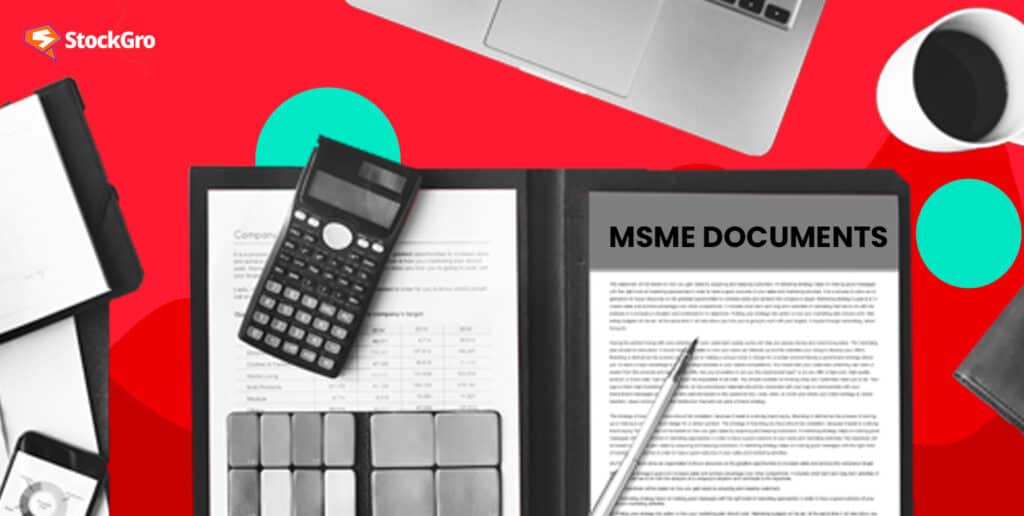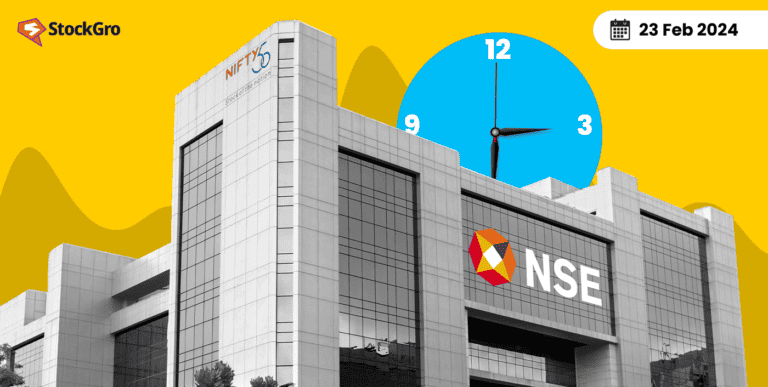
Micro, small, and medium enterprises (MSMEs) are essential to a thriving economy because they create jobs and boost GDP. Timely and sufficient access to credit is integral to the development and prosperity of MSMEs. For this reason, MSME loans are a great resource for these businesses.
However, a solid business plan isn’t enough for an MSME loan. The applicant must fully comprehend the documents required for an MSME loan. These documents attest to the company’s legitimacy and debt repayment capabilities. They aid lenders in determining the loan’s risk and making a well-informed lending decision.
This article will provide a thorough guide for prospective MSME loan applicants by delving deeper into the specifics of these documents.
Understanding MSME
Micro, Small, and Medium Enterprises, or MSME, play a significant role in India’s economy. With over 6 crore MSMEs steadily operating across the nation, they are instrumental in creating a more robust and independent India.
Contributing nearly 29.15% of the country’s GDP, these small economic engines make a big difference. They make a living by creating and transforming raw materials into finished products.
Not only do MSMEs boost the economy, but they also create jobs, encourage technological advancement, and kickstart a country’s modernisation. The term “backbone of the country” accurately describes them.
Eligibility criteria for MSME loans
Various eligibility criteria are put in place to ensure that MSME loans are granted to deserving enterprises. Although each lending institution has its own set of criteria, these are some of the most typical things taken into account:
Age: Between the ages of 25 and 55.
Business vintage: A minimum of 3 years in operation is typically required by lenders to qualify for an MSME business loan. Your company’s stability and financial viability can be proven after it has been running for a specific number of years.
Credit score: You can’t get a loan with a low credit score. Your creditworthiness is determined by various factors, including your repayment history, outstanding debts, and how much you use your credit card. If you wish to increase your loan eligibility chances, maintaining a high credit score is essential. For optimal results, aim for a score of 720 or above.
Annual turnover: The borrower must maintain a specific level of business activity for the lending institution to approve the loan. It gives them a better idea of the company’s potential for repayment and sustainability. The minimum turnover of a year should be more than ₹10 lakhs.
Financial statements: The three most typical financial statements that lenders ask for are income, balance, and cash flow. These records give a general idea of your company’s financial situation and aid in determining your repayment ability.
Collateral: Collateral may be needed when applying for a loan, but the specifics vary per lender and loan amount. You can use investments, real estate, or machinery as security for a loan.
The MSME loan eligibility documents are necessary to verify these qualifications. The lender will use these documents as evidence that the applicant and company are eligible for their loan.
Also read: Credit history: What is it and why it matters?
List of documents required for MSME loans
Make sure all of your documents are in order before applying for a micro, small, or medium enterprise loan. The following MSME loan documents are typically requested by lenders:
Business registration documents: Among these, you can find the official paperwork that proves your company’s legitimacy, such as your partnership deed, articles of association, memorandum of association, or business registration certificate.
PAN card: You can’t verify your identity or keep tabs on your money transactions without your Permanent Account Number (PAN) card. Your company’s PAN card must be current at all times.
Address proof: To verify your company’s legitimacy, lenders need to see an official document with your address. Utility bills, lease agreements, or deeds are all acceptable forms of such documentation.
Bank statements: The financial well-being and cash flow of your company can be gleaned from your most recent bank statements. In most cases, lenders will request statements that are no more than six months old.
Business plan: Your strategic acumen, potential, and ability to expand are on display in a well-written business plan. Your business model and the loan’s intended use can be better understood by lenders.
KYC documents: Photo identification, proof of address, and other Know Your Customer (KYC) documents are necessary to prove your company’s legitimacy and meet regulatory standards.
Also read: What does a credit report contain? Here is everything you should know!
How to apply for an MSME loan
Filing for a micro, small, or medium enterprise loan need not be scary. Your application’s simplicity and approval chances will both improve if you adhere to these steps:
Research lenders: Find the best lender for your company by doing some preliminary research and comparing their offerings. For the best terms and conditions, search for lenders that focus on micro, small, and medium enterprise loans.
Prepare your documents: Accumulate all the required paperwork identified. Verify that they are up-to-date, correct, and exhaustive. Faster processing of your application is possible with well-organised and prepared materials.
Calculate loan amount: Evaluate your company’s current and future financial situation to establish an appropriate loan amount. Being practical will help you ensure that the loan amount is affordable for your repayment options.
Approach the lender: To get in touch with a lender, use one of their many available channels: their website, a branch, or their customer service hotline. Find out what they need from you in addition to the application process details.
Submit your application: On the loan application, be very careful to give true and complete information. Make sure all the necessary documents are attached and labelled for easy reference.
Follow-up: Get in touch with the lender again after submitting your application to ensure things are progressing as planned. Always be on the ball and quick to reply if more information or documents are requested.
Avoid these mistakes in MSME loan applications
It is critical to steer clear of typical pitfalls that might derail your application for the loan. Be wary of these potential problems:
Incomplete documentation: It is imperative that you furnish comprehensive copies of all necessary documents. Your loan application may be delayed or denied due to missing information.
Inaccurate information: Review your application and supporting materials thoroughly before submitting them. Your application’s credibility could take a hit if discrepancies or mistakes exist in the documents.
Ignoring credit score: Lending decisions are heavily influenced by your credit score. Paying bills on time and responsibly managing your debts should be your top priority to maintain a good credit score.
Overlooking loan terms: Get a good grasp on the loan’s stipulations before you sign any paperwork. Before you commit to anything, make sure you are familiar with all of the terms and conditions, including interest rates, repayment dates, and any hidden fees.
Lack of business plan: To persuade lenders of your company’s potential and sustainability, a meticulously crafted business plan is essential. Spend some time making a detailed plan that includes your objectives, methods, and budget.
Bottomline
Applying for an MSME loan is a smart move that can help your company reach its growth goals. Your company’s legitimacy and future prospects are on display in the MSME loan required documents, which are more than just a formality.
Remember to avoid common mistakes and present a compelling business plan to showcase your potential to lenders. If you are well-prepared and have a plan, you can achieve financial success.
Further reading: Everything you need to know about credit ratings

